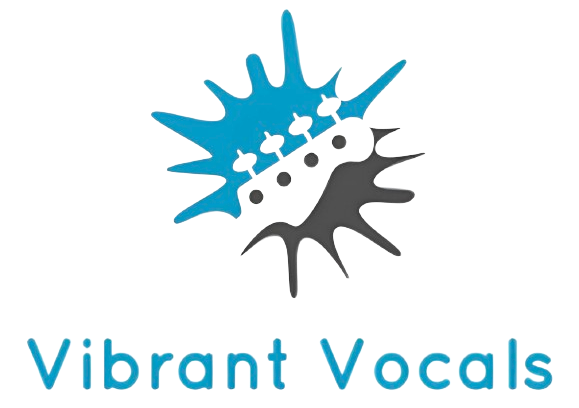Addressing Common Misconceptions About Vocal Care
When it comes to vocal care, there are numerous misconceptions that can lead to potential harm for professional vocalists. One common misconception is the belief that clearing one’s throat frequently is beneficial for the vocal cords. However, this actually creates more strain on the delicate vocal folds, resulting in potential damage over time. Another misconception is the idea that whispering is a safe way to rest the voice. In reality, whispering actually creates more tension on the vocal cords than speaking in a normal tone, leading to increased vocal fatigue.
Another prevalent misconception is the notion that drinking hot tea with honey is a cure-all for vocal issues. While herbal teas can be soothing for the throat, excessive heat from the tea can actually cause inflammation and worsen existing vocal problems. Additionally, relying solely on honey for vocal health neglects the importance of overall hydration and proper vocal warm-ups and exercises. By dispelling these common misconceptions and emphasizing the importance of accurate vocal care practices, professional vocalists can better protect and maintain their instrument for long-term success and well-being.
Dispelling Myths Surrounding Vocal Health Practices
Dispelling myths surrounding vocal health practices is crucial for ensuring that professional vocalists have accurate information to maintain their voices. One common misconception is that whispering is a safe alternative to speaking loudly when experiencing vocal strain. In reality, whispering can actually be more taxing on the vocal cords due to the increased tension required to produce sound in a hushed tone.
Another prevalent myth is that drinking hot tea with honey is a quick fix for vocal issues. While soothing to the throat, this remedy only provides temporary relief and does not address underlying vocal health concerns. It’s essential for singers to seek professional advice from a speech-language pathologist or a laryngologist to receive a proper diagnosis and personalized treatment plan for any vocal problems they may be facing.
Cultural Influences on Vocal Care Practices
Cultural influences play a significant role in shaping vocal care practices around the world. Different cultures have unique beliefs and traditions when it comes to maintaining vocal health. For example, in some cultures, specific herbs or teas are believed to aid in vocal lubrication and clarity. These traditional remedies have been passed down through generations and are still utilized by vocalists today.
Moreover, cultural practices often dictate vocal warm-up routines and performance techniques. Some cultures emphasize the importance of meditation and mindfulness before singing, while others focus on physical exercises to strengthen the vocal cords. By understanding and appreciating these diverse cultural influences, vocal care professionals can tailor their services to meet the specific needs of singers from different backgrounds.
Traditional Vocal Health Remedies from Around the World
Traditional vocal health remedies from around the world offer a unique insight into the diverse cultural approaches towards maintaining optimal vocal well-being. In India, for instance, the practice of drinking warm water mixed with honey and turmeric has been passed down for generations to soothe vocal cords and reduce inflammation. Similarly, in Japan, singers have relied on a mixture of licorice root and ginger tea to alleviate throat discomfort and maintain clarity in their vocals.
In parts of Africa, the tradition of using raw honey and aloe vera juice as a vocal tonic has been a customary remedy for vocal health. The natural antibacterial properties of honey combined with the soothing effects of aloe vera create a potent elixir that helps singers maintain vocal strength and resilience. These ancient remedies highlight the deep-rooted connection between vocal care and cultural practices, showcasing the diversity and richness of vocal health traditions across the globe.
Challenges Faced by Professional Vocalists Today
Professional vocalists today face a myriad of challenges that can impact their vocal health and overall performance. One of the major hurdles is the demanding nature of their profession, which often involves long hours of singing, frequent performances, and extensive travel schedules. This relentless pace can lead to vocal fatigue, strain, and even vocal cord damage if not managed properly.
In addition to the physical demands, professional vocalists also encounter mental and emotional challenges. The pressure to deliver flawless performances, meet audience expectations, and navigate the competitive music industry can take a toll on their mental well-being. Anxiety, stage fright, and self-doubt are common issues that many vocalists grapple with, affecting not only their performance but also their overall quality of life.
Modern Vocal Health Concerns in the Music Industry
Professional vocalists in the music industry are increasingly facing a myriad of health concerns that can significantly impact their careers. One of the major issues plaguing vocalists today is vocal fatigue, often caused by overuse or improper singing techniques. This can lead to strained vocal cords, reduced vocal range, and overall diminished vocal performance quality over time. Consequently, vocalists are under pressure to balance rigorous performance schedules with the need for adequate vocal rest and care.
Additionally, the prevalence of acid reflux among vocalists poses a serious threat to their vocal health. Acid reflux can cause irritation and inflammation of the vocal cords, leading to hoarseness, vocal damage, and a decline in singing ability. Despite its common occurrence, many vocalists fail to recognize the impact of acid reflux on their vocal health, further exacerbating the issue. As a result, maintaining proper vocal hygiene and seeking timely medical intervention are vital aspects of preserving vocal health in the competitive music industry.
Related Links
Review of Professional Vocal Care Services
How to Maintain Vocal Health and Hydration

